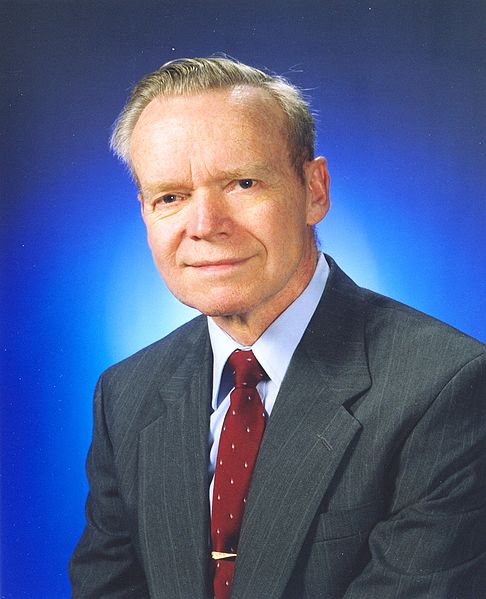
* * * * *
Catholicism is a rather complex system in some ways, simple in another sense, just as (I would say) atheism and agnosticism are (or the various forms of Protestantism, for that matter). But granted, there are a lot more particulars, historical arguments, abstract theological constructs, spirituality and pious practices, and revelation to contend with, so I don’t blame anyone for lacking full understanding or being confused (especially with all the misinformation and prejudice around).
I’d be happy to help explain in due course whatever you are curious about, to the best of my knowledge (I may deem a few subjects inappropriate in this context – at least in depth). But I also want to learn your rationale as an atheist/agnostic. I don’t want this to turn into (solely) “1001 questions for the Catholic” (with no single one adequately dealt with – I’ve been through that routine many times, and it is fruitless). It’s gotta be a two-way street. Not that I think you’re doing that (or anyone else thus far). I just want to make my opinion clear as to why I am here.
All answers are possibly subject to later revision, as all of these matters can get very complex. But here are my quick replies:
(Q1) Is God a person?
No, God is three Persons. :-)
This is ungrammatical. The term “God” is singular, not plural.
Yes, but multiple personalities in the Godhead are plural, so this creates a grammatical conundrum not easily resolved, because it is beyond our experience as human beings.
Do you mean, perhaps, the following (which would be grammatical): God is a group of three persons?
Good enough I guess. How about “God are three persons”? Seriously, though, one could say: “God is such that He remains one God, while subsisting in three persons.”
You said that God is three persons. The appropriate pronoun for three persons is “they.”
As persons, yes, but because the three are one God (monotheism as opposed to tritheism) it is conventional to refer to God in the singular, or to each Divine Person in the singular.
If not, how might he be described?
As the Holy Trinity, or God the Father, God the Son (Jesus), and God the Holy Spirit: three Persons equal in essence, eternal existence, power, and glory. This is no different than an orthodox Protestant or Orthodox position; we are all agreed on this. The only ones who disagree are fringe groups (in terms of historic, mainstream, “orthodox” trinitarian Christianity) like Mormons, Jehovah’s Witnesses, Christian Scientists, and suchlike.
What properties are possessed by each of the three persons of the Trinity that are NOT possessed by the other two? (Just one such property for each would do.)
Jesus has a body. Jesus could die (as a man). Jesus could eat fish. The Father has an ontological priority (but not superiority: “the Father sent the Son” / “I and the Father are one”). The Holy Spirit proceeds (ontologically, or logically) from the Father and the Son. This is the doctrine of filioque (“proceeds” in the Nicene Creed), which is a controversy between Catholics and Orthodox.
How about the following: “God the Son is able to walk five steps, but neither God the Father nor God the Holy Spirit are able to do that”?
Indeed, as I already alluded to above.
And here’s another: “God the Father knows the exact date of the Second Coming, but God the Son does not know it.”
I think Jesus was saying that in reference to His humanity alone, since in His Godhood He is omniscient just as the Father is. That gets into the doctrine of the Two Natures, which is far too complex to delve into at any length here (nor do I wish to, as that is a fit topic for theologians, not laymen like myself).
“(It’s unclear whether or not God the Holy Spirit knows it.)”
I would suspect that He does, but I’m not absolutely sure.
A Catholic friend of mine, the late Mike Breslin, sent the following clarifying remarks about this question:
There is but one intellect and one will in God. Father [John A.] Hardon once said that instead of saying that the three Persons in the Blessed Trinity “share” the divine intellect and divine will, it is better to say that all three “completely possess” the one divine intellect and one divine will. That there is only one will in God can be seen from the fact that if there were multiple wills in the Trinity then they could conceivably be opposed to each other and, as we all know, God is one. Thus the same for the other spiritual faculty, the divine intellect. As further backup to this, Father Hardon once said that anything God does outside of Himself, such as His interaction with the created universe, is done by all three Persons in the Trinity (due to one will and one intellect); it is mainly in the relations between the Persons that they can act separately.
Thus, Father said, when Jesus prayed the “Our Father”, He was praying to the Father; when we pray “Our Father”, we are praying to the Blessed Trinity. Another thing that falls out from this is that the created universe was created by the Trinity; God the Father cannot act alone without the participation of the Second Person and Third Person. What we do is to attribute creation to the Father as a way of helping us distinguish between the Persons, so we don’t lose sight of this important doctrine and risk becoming Unitarians. But in reality the entire Trinity created the universe. When God does something external to Himself, all three Persons partake of the action.
So your answer to Ted above should have been “Yes, anything one of the Persons knows, all of the Persons know, as there is only one divine intellect in God”).
I would particularly like an example of a property possessed by God the Holy Spirit that is not possessed by God the Father.He proceeds from the Father.
(Q2) Does God exist in space?
The Father and the Holy Spirit do not, as they are spirits. The Son does, because He is incarnate (i.e., He took on flesh, the literal meaning). Greek carne, I believe, from which we get “carnivorous,” etc. “Carnival” has the same root; it comes from Lent and abstaining from meat. But I digress . . . Forgive me if I go over things you guys are all familiar with already.
How could God the Son sit at the right hand of God the Father if only the former and not the latter exists in space?
Because this is an anthropomorphism. The “arm of God” in Hebrew thought means the power of God.
Also, where, exactly (or approximately, if you don’t know exactly), is God the Son located?
In heaven, bodily (but I’m not sure that heaven is considered to be in space itself); everywhere (as a function of His omnipresence: “I am with you always”), and miraculously in the Eucharist.
Where is heaven located? Is it quite far from here?
It is not located in space, as far as I know. It is a spiritual reality, and spirit doesn’t possess extension or dimension.
Are there any saints there already?
Yes.
If so, then will they make a trip back to earth for the General Resurrection?
Some may, yes, as accounts of the Second Coming indicate.
How will the resurrected bodies move from earth to heaven?
Boeing 757’s I believe. The reservations are already made . . .
Will it be faster than the speed of light?
No; slightly less, so the aesthetics of the trip can be better enjoyed.
(Q3) Does God exist in time?
No.
How about God the Son? Surely he exists in time. After all, he is supposed to be between the First Coming and the Second Coming.
As a man, yes. As God, no. He is both God and Man. This is the Two Natures, again, formulated (i.e., fully developed) at the Council of Chalcedon in 451.
You here seem to assume that God the Son exists in both space and time.
As a human person, obviously.
(Q4) Is God disembodied?
If that means once having had a body and losing it (as I believe it does), no. The Father and the Spirit have no body; never did, and never will; the Son does (we just celebrated His bodily Resurrection at Easter), and will not ever lose it. He has a “glorified” Body now, with extraordinary characteristics, as we believe all of us who make it to heaven eventually will also have, as a result of the General Resurrection.
(Q5) Is God the creator of space and time?
Yes.
Which one did it, the Father or the Son? Or did they do it together?
The latter, since they both possess this attribute.
(Q6) Does God have desires?
Yes, as a function of love. For example, He desires all men to be saved, even though He knows full well that they will not be, due to the free will He allows them to have.
Does each member of the Trinity desire all men to be saved?
Yes.
Is there a conflict of desires there (between all men being saved and humans having free will)?
Yes, between the perfect divine will and human free will and free agency. The possibility of non-salvation exists because man has been allowed to freely choose his destiny, so as to not be merely a robot.
Also, why would a man freely choose to be unsaved?
Ignorance; various bondages, blindnesses, addictions, deceptions, pride, self-will, psychological deficiencies, deprivations of childhood or environment, excessive self-importance, substance abuse, etc. (some false ideas would be, e.g., heaven is boring; God is a stick-in-the-mud, Christians are boring and ignoramuses — better to be with the exciting, “intelligent” sinners in hell, etc. Party time, blah blah blah).
We maintain that anyone who truly understood and believed in what God has in store for those who are saved, could not refuse it, in one sense, but then sin and evil mitigate (and any number of erroneous philosophies and notions) against such an understanding and comprehension. People want freedom to live as they please.
The very stereotypes that even intelligent people carry about concerning the Christian notion of heaven suggests that much mistaken thought is at play here. People would rather foolishly carp on about playing harps on a cloud than to ponder a serious philosophical reflection upon immortality and the purpose of human life.
Is it because he believes that he would suffer less in that situation than he would as a saved person?
Presumably, that might be one reason such a person would give, if he thinks such choice is grounded in reality in the first place.
If so, then would that be a true belief or a false belief?
False.
Why do you use the pronoun “he” for God?
Because that is how He revealed Himself. It is anthropomorphic for God the Father and God the Spirit (also referred to as “He”) and literal for Jesus, as a Man. When we get into this business of personal pronouns, that is part of revelation, as is most of this discussion. Christians believe in revelation, of course, so when you are asking us about our beliefs, we necessarily have to often refer to it.
(Q7) Does God feel emotions?
Jesus certainly did, being a human being. He wept; He got very angry at hypocrisy and spiritual pride; He anguished in the Garden of Gethsemane. The Father – technically – does not have “emotions” as human beings do, colored by senses and (in fallen creatures, unlike Jesus) all sorts of conflicting desires, which He is not burdened by. German Catholic theologian Ludwig Ott states: “. . . affections such as longing, sadness, hope, anger, can be attributed to God only in an anthropomorphic sense.” [Fundamentals of Catholic Dogma, 1955; rep.: Rockford, Illinois: TAN Publishers, 1974, 45]
Of course, the precise definitions of “desire” and “emotion” involve long discussions, and I am no expert on those areas, by any means. I don’t usually take a Thomist approach in my philosophy or apologetics, though I am very fond of the cosmological argument, and am thoroughly empirical as well.
Is Jesus still a human being? Does he still feel emotions?
Yes, yes. Divine Person is the more technical term, I think.
(Q8) Does God desire worldwide belief among humans that he had a son called Jesus who died and rose again?
Yes.
Do most people believe that?
More than any other world religion, but still a minority.
If not, how come?
The factors above recounted, and many more, I’m sure. Some have never heard the Christian message, so they are judged by what knowledge they have, as it is taught in the Bible.
If God desires that something be worldwide, why is it not worldwide?
Because of human free will. But Christianity is far more worldwide than any other religion, especially with the modern media and now the Internet.
(Q9) What was the aim of having Jesus die on the cross?
To redeem mankind, atone for the sins of the world, and make it possible for men to attain to salvation, and reconciliation and eternal life with God. We were always intended to be in union with God, as that is our fulfillment. We are made in His image. And that includes atheists, whether they know it or not. :-)
Why didn’t God simply declare to humanity: “You are hereby redeemed”? Why go through the sacrifice bit?
I think it was to show that God was willing to relate to us, even to the extent of the most miserable suffering, betrayal, misunderstanding; everything that Jesus had to endure for our sakes. Whatever He allows to happen to us, He also chose to experience Himself. I think that is unutterably profound. I know you probably don’t believe it, but perhaps you and other atheists and agnostics can at least appreciate the moral beauty of such a notion. Most people I have ever talked to admire Jesus as a person and ethical teacher.
I know it is written “Without blood, there is no remission of sin,” but why even have such a rule in the first place? It seems irrational.
Not in the context of trying to get through to primitive societies (the ancient Hebrews) that sin entails a cost. So the OT sacrificial system and Law was set up as a “tutor” (as Paul refers to it). Thus Jesus followed through with the symbolism of a “slain lamb,” as a fulfillment of OT Law and ceremony.
(Q10) What is it that we are saved from?
Sin (evil) and damnation (separation from God). Or, another way of putting it is the “world” (Greek, cosmos, or “world-system”), the “flesh” (i.e., concupiscence, in moral theology), and the devil (Satan, the fallen angel who rebelled against God and desires to take as many of us humans with him as he can, as all sore losers do :-).”
Does Satan ever succeed in getting anyone damned who would otherwise have been saved (i.e., had there been no Satan)?
I’m sure he does, by definition. But ultimately each person makes their choice. If they allow themselves to be influenced by various factors, then they will be more susceptible to Satanic deception. In that sense Satan would be a secondary cause, but the final responsibility always comes down to the person.
(Q11) What must we do to get saved?
Accept God’s free grace made possible by Jesus’ work on the Cross, which enables us to live righteously, repent and avoid mortal sin, and thereby attain to eschatological salvation. We can lose the free gift of salvation by lapsing back into serious sin, because we must cooperate with God and His grace, being free creatures and possessed of an independent will. Calvinists explain this simply by saying that such a person was never saved, or “elect” in the first place.
But the NT refers often to a vigilance concerning one’s own salvation, lest it be lost. The Apostle Paul compared this ongoing process to an ancient Greek foot race (perhaps a reference to the Olympic Games), where the persevering receive a “crown.”
How does the sacrifice of Jesus enable people to live righteously?
By making possible the acquisition of more grace, which enables one to live righteously. We can’t do it on our own.
Job lived righteously even before that event.
But grace and the efficacy of Christ’s atonement extends retroactively, back in time.
Also, I have a particular interest in Christian universalists who believe that the sacrifice of Jesus got everyone saved, without exception. Some of them see no need for repentance, since they say that neither repentance nor anything else is a requirement for salvation.
That is hardly Christianity. It is a gutted version, if at all. Certainly it can’t be harmonized with the teaching of Jesus, so how, then, can it claim to be a religion (“Christian”) which follows Him?
My question for you is this: assuming that those universalists who do not repent nevertheless live righteously (and commit no mortal sins), can they get saved?
It depends on how much they know. “To whom much is given, much is required.” Catholics believe in what we call “invincible ignorance” and varying degrees of culpability, based on what knows. We also hold that if one truly does know the requirements to be saved, but rejects them with sufficient reflection and full consent of the will (requirements for a mortal sin), then he or she cannot be saved, as they would be culpable for acting upon what they know.
If one truly understands the Christian doctrine, truly knows that Jesus is Lord and Savior, etc. (God makes that determination, not me or any other human being) and rejects that with full consent of the will (not, e.g., while high on cocaine or in the depths of depression, and so forth — things which cause the will to be dysfunctional or inoperative altogether), then they will assuredly be damned. All Christians would agree on that.
I doubt that that is the case with anyone here, though of course I have not been here long, and know very little about anyone personally, let alone the extent of their knowledge of historic Christianity. I am going by my past experience in these matters, particularly with atheists and those who like philosophy.
But the point is that I routinely assume that people are not willfully rejecting what they know to be true. That’s why I am so keen on granting sincerity to my dialectical opponents. It seems to me that that is fundamental to all constructive discussion.
I’ve been discussing and arguing about these things for 20 years. I know very well what I am talking about on this one (about the sheer lack of theological knowledge in the general public; even among intellectuals and academics). People need to simply become more informed, what with all the silly stereotypes and gross caricatures of Christianity about.
I grew up with these, too. I’m no different than anyone else in that regard. I had to unlearn every one of them, and then dozens more distortions about Catholicism in particular, after 1990. My childhood was about as secularist as they come in America. I had to learn on my own all the theology I now have obtained.
I certainly didn’t receive much in the nominal Methodist church I went to till only the age of 10. From 10 to 19 I was (more than anything else) a pagan or secularist with occultic leanings (though I never denied God’s existence); then I converted to evangelical Protestantism; finally to (evangelical and orthodox) Catholicism.
If a person rejects Christianity, having truly understood it, that’s one thing. Even God gives them that freedom, so I must allow them that freedom, too. If they want to live separated from God, Whom they might see as some sort of tyrant or over-dominant father figure or something (any number of false conceptions), or even if they fully understand and believe in God, and still reject Him, or deny His existence, period, then God lets them.
But when they reject a caricature of Christianity and of God, that’s where my role as an apologist comes into play, to at least do my best to see that they know precisely what they are rejecting.
But I also believe G.K. Chesterton’s maxim (which hits upon another angle of this):
Christianity has not been tried and found wanting. It has been found difficult and left untried.
How much wisdom and perceptiveness of human nature — typical of GKC — is present in those words!
***
(originally late April 2001)
Photo credit: Theodore Drange (mid-90s) [Wikimedia Commons / Creative Commons Attribution-Share Alike 3.0 Unported license]
***













